
If you enjoy eating nuts, chances are you’ve thought about sharing a few with your dog. But are nuts okay for dogs to eat? Are some nuts acceptable, and others not safe?
Feeding your dog a wide variety of treats can help ensure vitamin and mineral intake as well as provide interest. Recent studies have shown giving your dog a varied diet increases mental stimulation, slowing down the effects of aging.
Similar to many seeds, nuts contain beneficial oils and fats, as well as vitamin B6, copper and potassium. So there is nutritional value in nuts, but are they safe for dogs?
Can Dogs Eat Nuts?
Overall, nuts are not the best snack choice for dogs, but there are some nuts worse for canines than others. Most nuts are an unhealthy choice for dogs, and some nuts are even toxic.
Why Are Nuts Bad for Dogs?
Not all nuts are toxic for dogs, but they are all very high in fat. This can lead to obesity and pancreatitis in dogs. Salted nuts can also lead to water retention. Some nuts are potential choking hazards. And some nuts, like macadamia nuts, are very toxic to dogs.
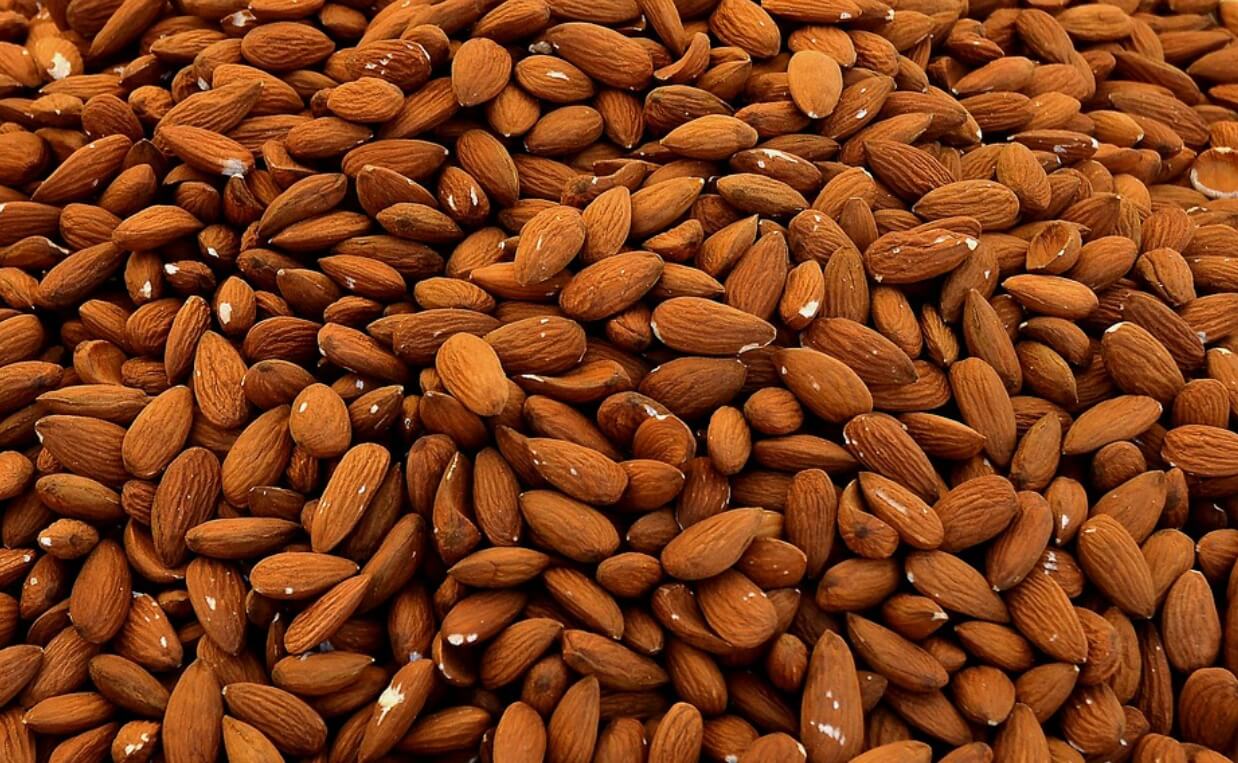
-
Almonds
You should avoid giving your dog almonds. Dogs can’t digest them very well and they are a choking hazard. They tend to cause blockages in the digestive system and can irritate your dog’s gut. The high fat content causes pancreatitis. Although it probably won’t hurt your dog if they find a few almonds on the floor, it’s worth not feeding them to your dog whenever possible.
Almonds often come seasoned and flavored. Those seasonings and flavors are not good for dogs. Since there are no known benefits to feeding your dog almonds, it’s best to avoid feeding them to your dog.
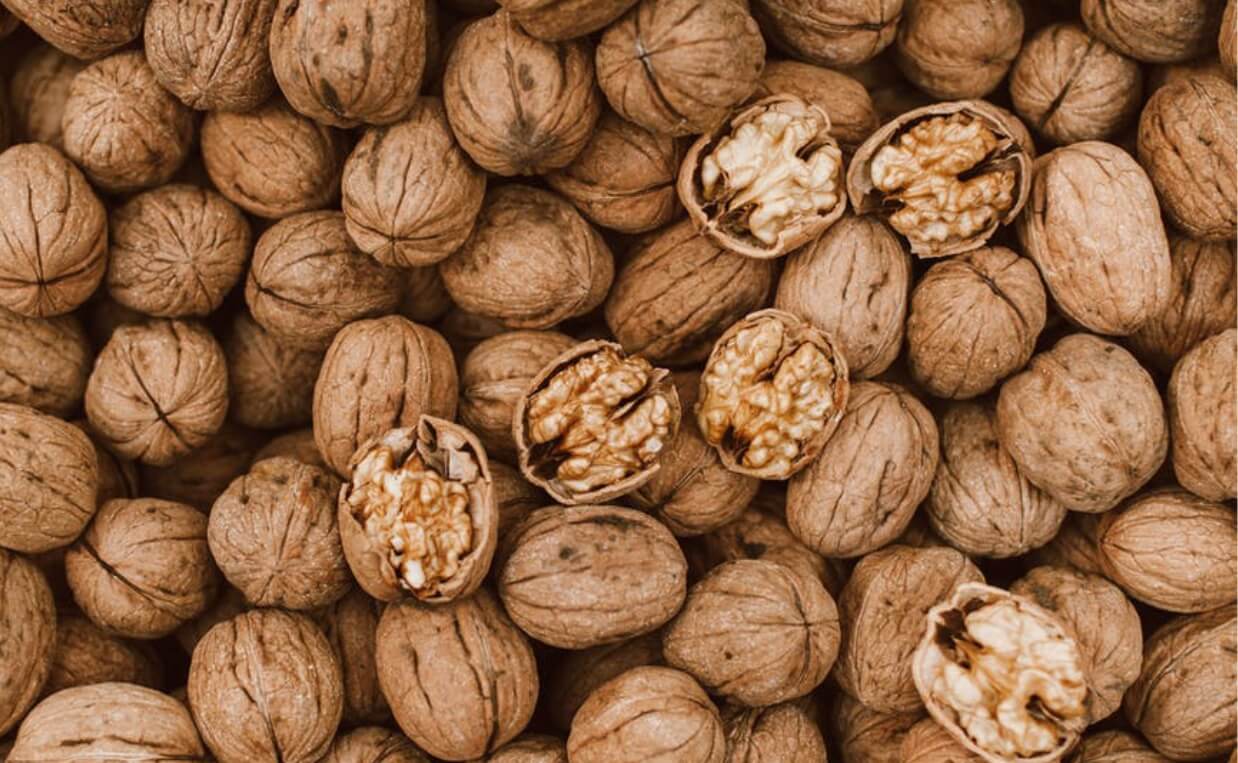
-
Walnuts
Walnuts should not be fed to dogs. They can cause vomiting, diarrhea and even seizures in dogs. About half of the dogs who ingest walnuts will experience stomach distress, usually in the form of vomiting.
A common mold grows on walnuts when they lie on the ground under a tree. This mold is toxic to dogs, causing tremors and seizures. For this reason it is best to not feed your dog walnuts.

-
Macadamia nuts
Macadamia nuts are extremely toxic to dogs. Your dog only needs to eat a small amount of macadamia nuts to experience negative results.
Signs your dog has eaten macadamia nuts include weak muscles, especially in the back legs, vomiting and diarrhea. Signs of a serious reaction include shaking, high fever or the inability to walk. If you suspect your dog has eaten macadamia nuts, call your veterinarian. In serious cases, your dog will need care in a veterinary hospital.
-
Hickory nuts
Hickory nuts are not recommended for dogs. Although not as toxic as walnuts or macadamia nuts, hickory nuts can cause problems for dogs due to their salt, fat and phosphorus content. They also tend to contain tremorgenic mycotoxin, a substance which causes seizures and tremors in dogs.
If your dog steals a hickory nut, you don’t need to rush him or her to the vet but be sure to watch your dog and take them in if you notice stomach distress or tremors.
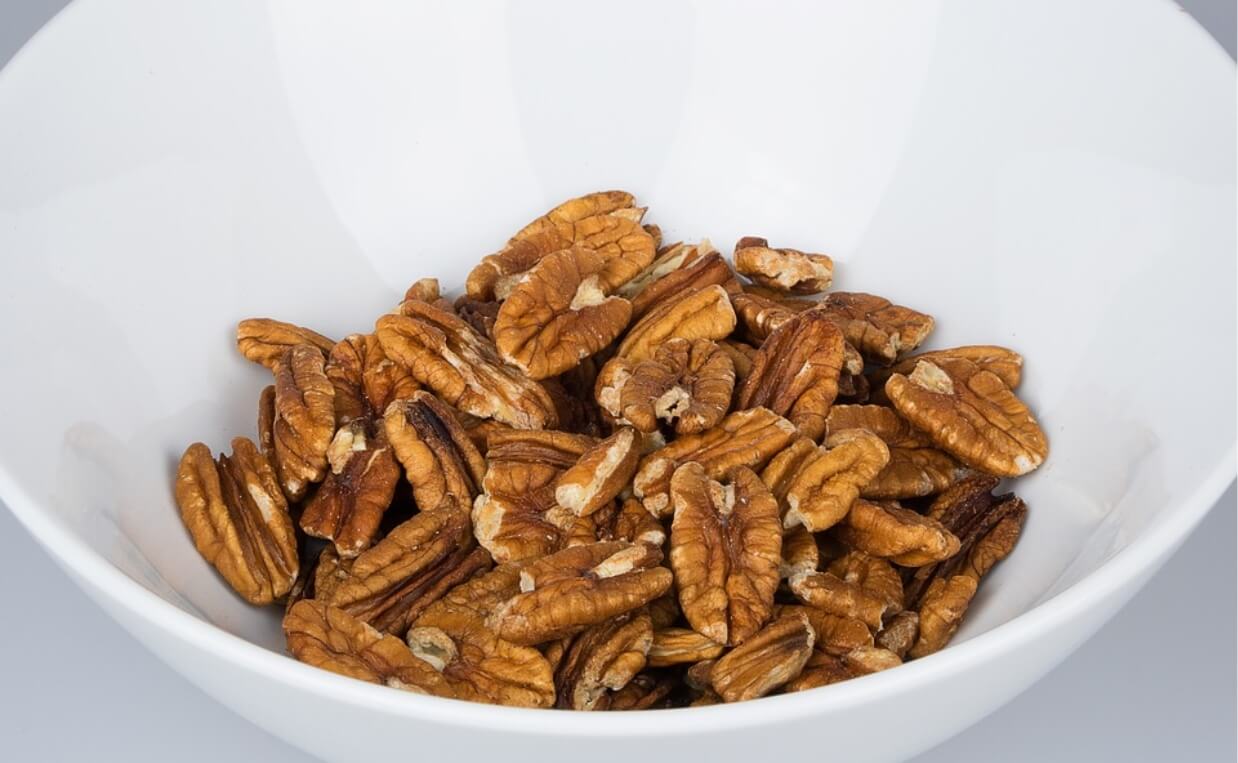
-
Pecans
Pecans and walnuts are very similar, and they both tend to attract the same types of molds. These molds cause tremors in dogs. Pecans are also high in mycotoxins, which cause vomiting, diarrhea, abdominal pain and tremors. They also contain aflatoxin which can cause liver damage. If you suspect your dog has eaten a pecan, you should keep a very close eye on your dog for the next 24 hours.
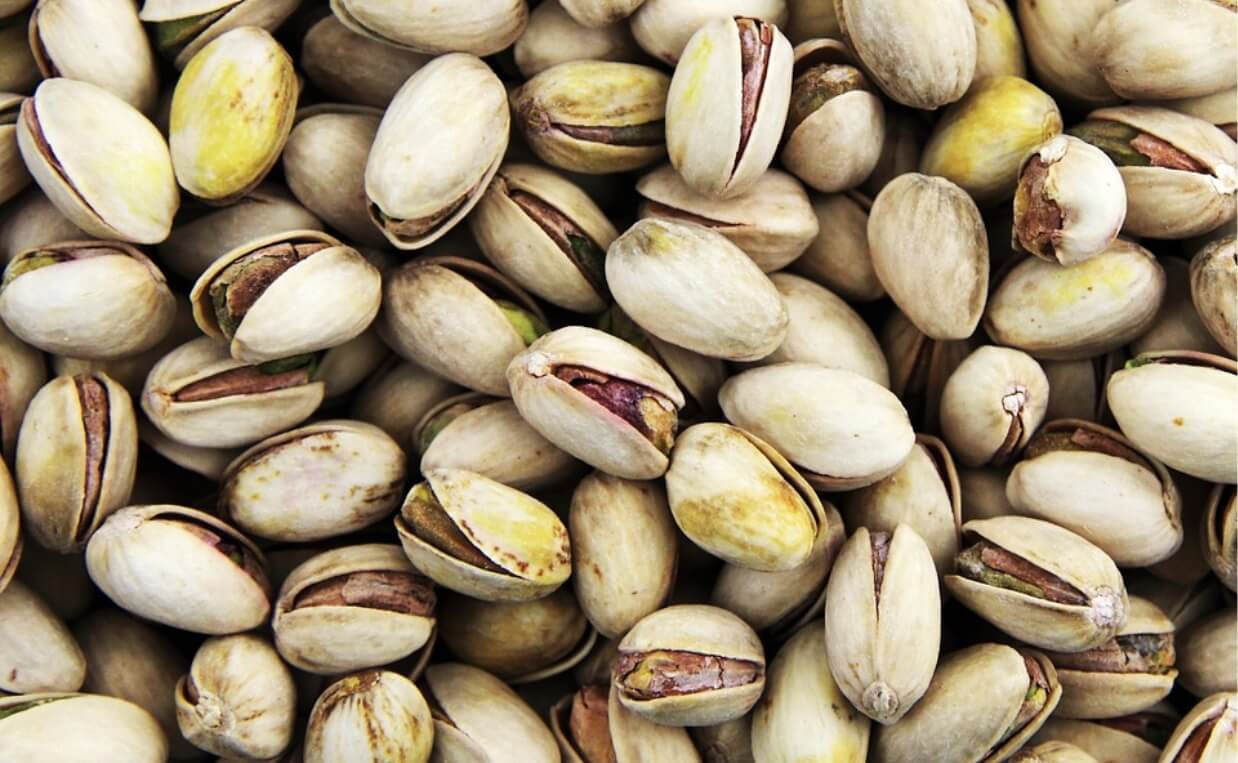
-
Pistachios
Like pecans, pistachios contain aflatoxin, which can cause liver damage. They also are a choking hazard. Avoid feeding your dog pistachios.
-
Brazil nuts
Brazil nuts are exceptionally high in fat and therefore cause pancreatitis if ingested long-term.
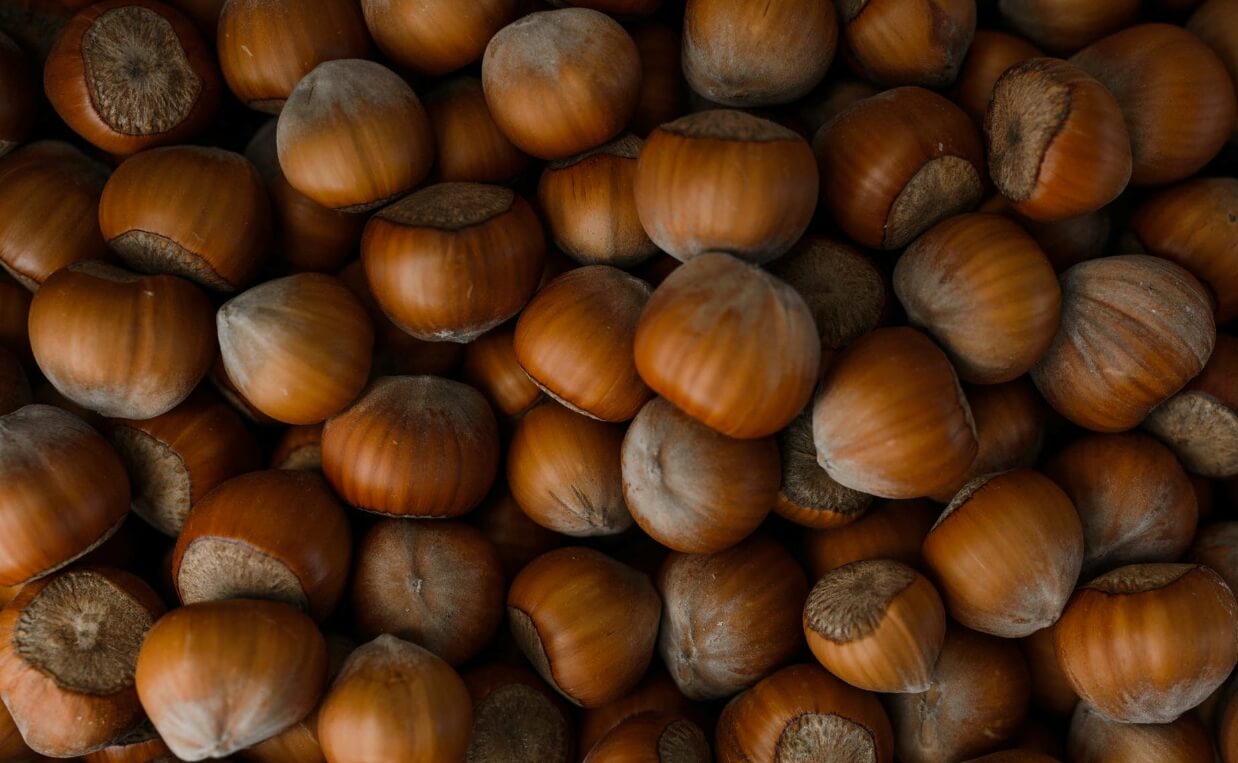
-
Hazelnuts
Hazelnuts are risky because they contain mycotoxins and juglone, both poisonous to dogs.
-
Chestnuts
Chestnuts are best to avoid because they are a choking hazard to dogs. Although not toxic to dogs, these starchy nuts are pretty large and can cause a blockage in a dog’s intestine.
-
Coconuts
Coconuts are a type of fruit known as a drupe. They are also classified as a tree nut, which is why I’ve included them in this list.
Dogs can safely eat coconut meat when given in small amounts. Coconut meat is hydrating and packed with healthy vitamins, minerals and fiber. It also contains antioxidants, supportive of the immune system and repair damage.
Coconut contains lauric acid, known to combat viruses, treat yeast infections and decrease inflammation. It is often given as a natural home remedy for relief from joint pain.
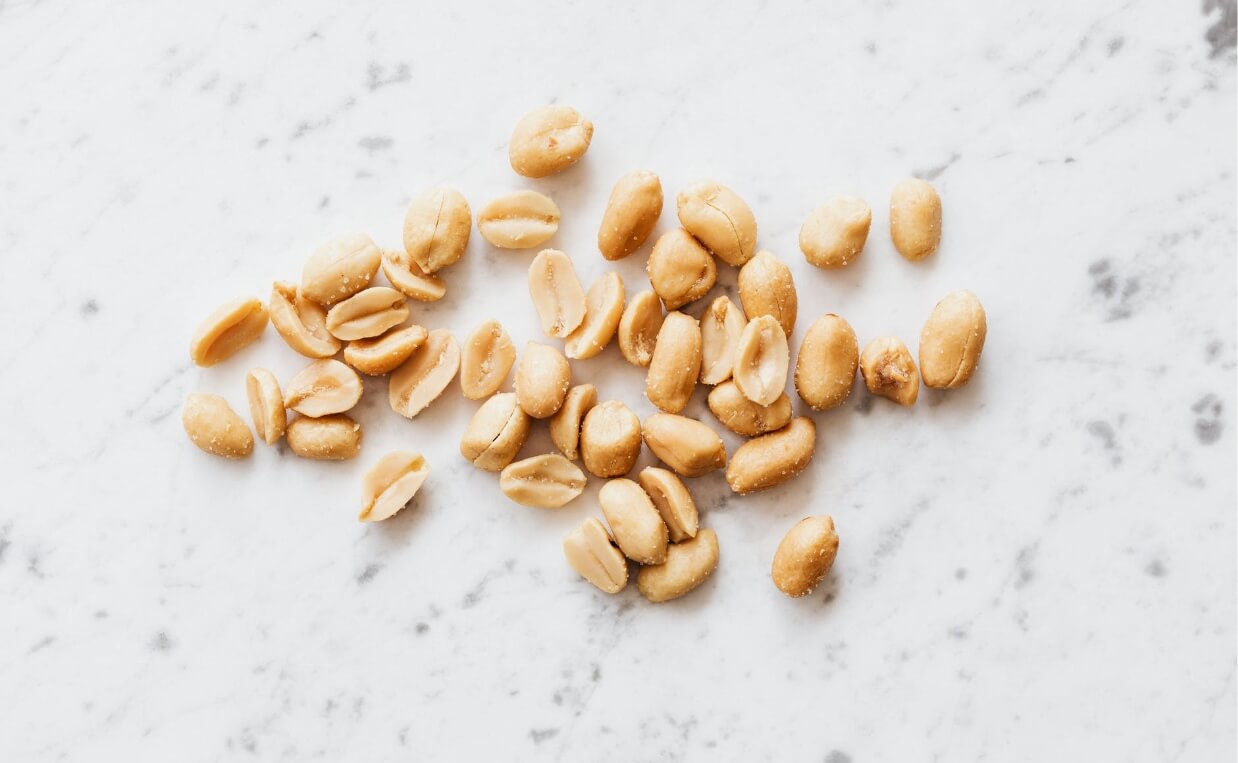
-
Peanuts
Interestingly, peanuts are not actually nuts. They are technically in the legume family (think beans and peas). However, they are generally counted in the nut family because of their texture and taste. Luckily peanuts are generally safe for dogs. Peanut butter is often used as a training treat.
Peanuts are high in fat so don’t feed them to your dog if your dog is overweight or prone to pancreatitis. Furthermore, peanuts are often roasted in salt or other flavorings, many which can cause problems for dogs. Be sure to avoid peanuts flavored with chili flavorings, onion flavoring or garlic powder.
Peanut butter is generally safe for dogs; just make sure there isn’t any added xylitol (used as an artificial sweetener), so make sure you check the ingredients before you give any to your dog.
Given in moderation, peanuts and peanut butter can be a healthy treat for dogs, containing plenty of biotin, phosphorus, manganese and niacin, among other essential vitamins and minerals.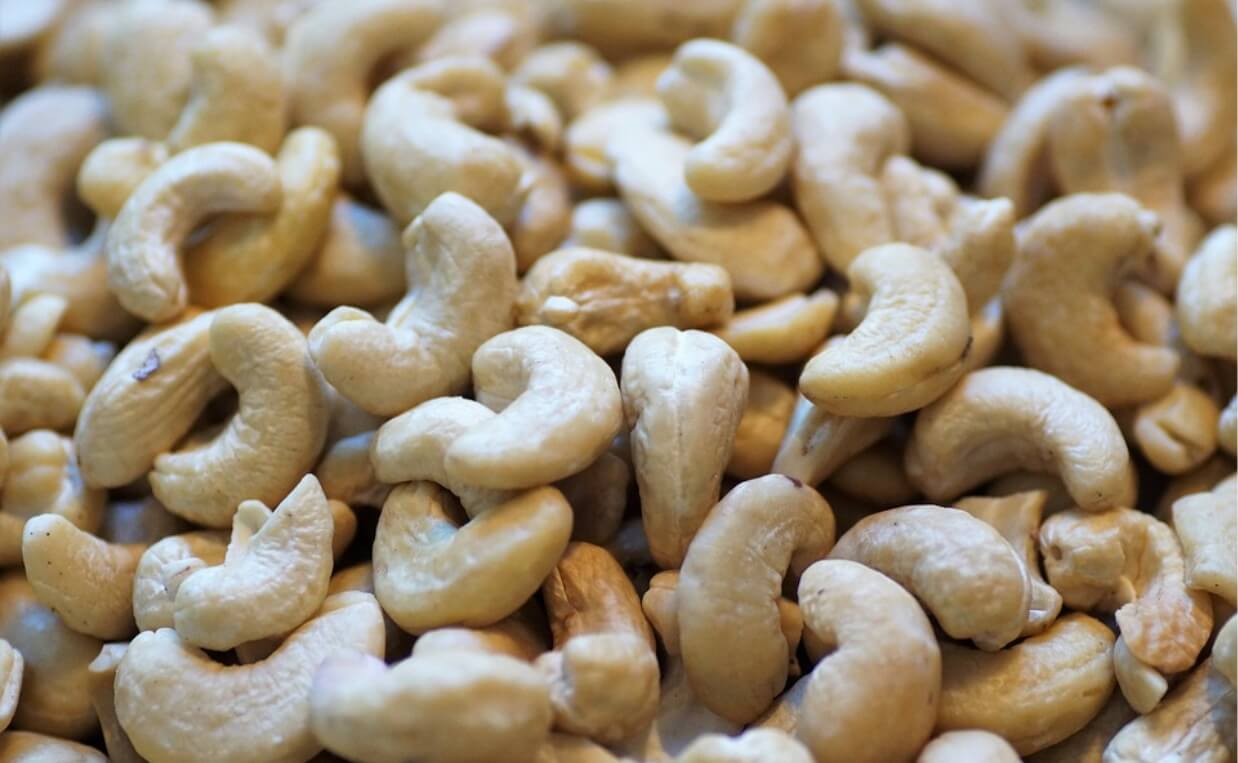
-
Cashews
Cashews are not known to be toxic to dogs, but they are high in fat. Just like peanuts, make sure they do not have any added salt, seasonings or flavorings. These additions are not good for dogs. Raw cashews are okay for dogs in small quantities.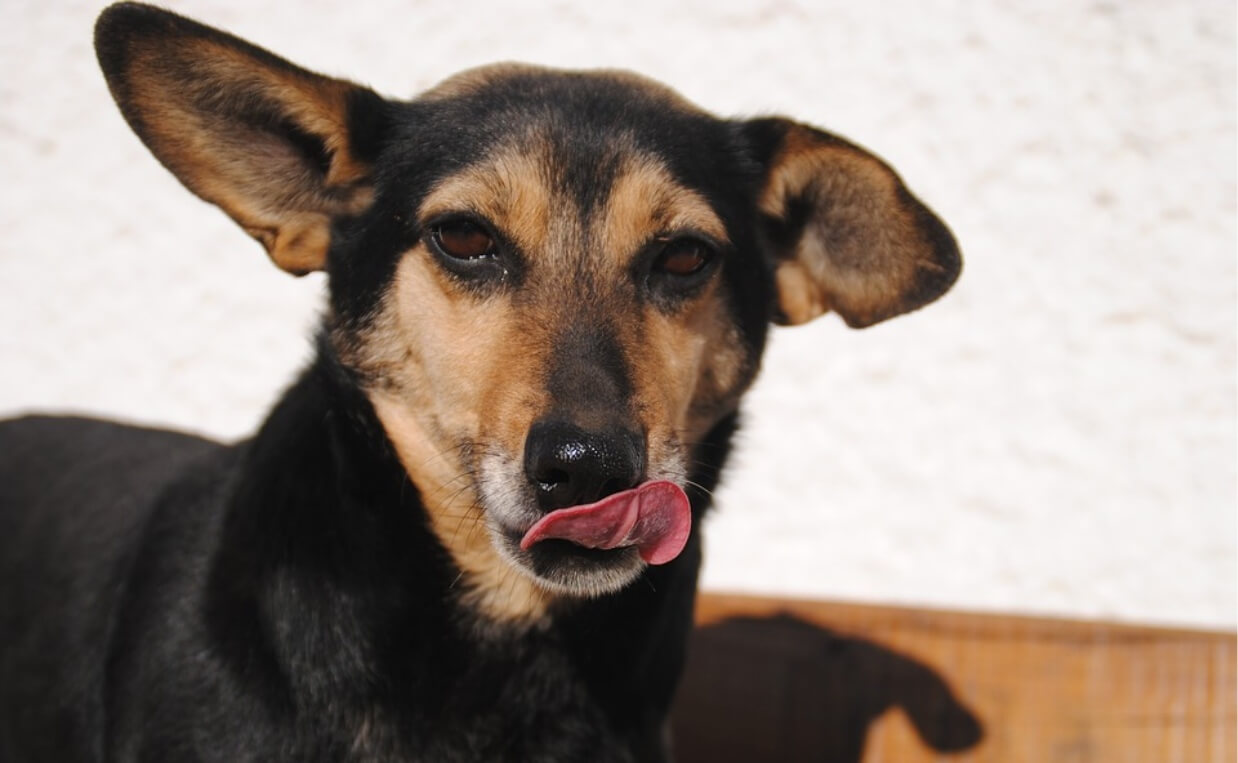
Overall, nuts are not the best snack to feed your dog. Most of them cause an upset stomach, diarrhea and neurological problems like tremors. While these symptoms generally go away on their own, seek veterinary medical attention if you suspect or know your dog has ingested any of the above nuts known to be toxic or cause distress. Long-term ingestion will contribute to obesity and pancreatitis.
Want more information on what dogs can and can’t eat? Check out the Ultimate Guide to Foods You Can and Can’t Feed Your Dog
Are there any nuts you think should be added to this list? Please leave your suggestion in the comments below…

 What Every Dog Owner Needs to Know About Canine Anemia
What Every Dog Owner Needs to Know About Canine Anemia Why It’s Crucial that You Start Grooming Your Puppy Early and Regularly
Why It’s Crucial that You Start Grooming Your Puppy Early and Regularly How to Provide the Best Care for Your Senior Dog
How to Provide the Best Care for Your Senior Dog Everything You Need to Know About Cannabis Oil for Dogs
Everything You Need to Know About Cannabis Oil for Dogs What Every Dog Owner Needs to Know About Kennel Cough
What Every Dog Owner Needs to Know About Kennel Cough






Leave a Reply